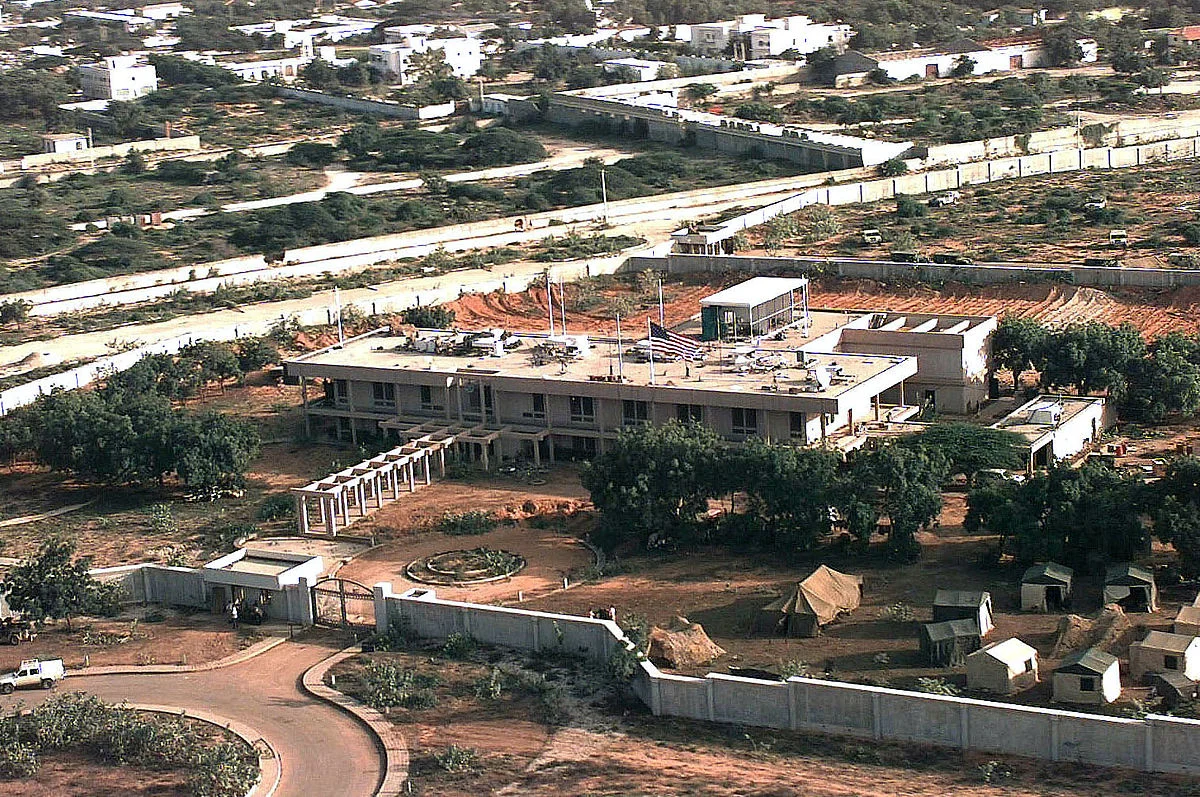U.S. Announces Plans to Reopen Embassy in Somalia
This aerial photograph shows the U.S. embassy in Mogadishu, Somalia, which was closed in 1991 following the breakout of civil war. (Wikimedia Commons)
The United States announced on October 2 that it will reopen its embassy in Mogadishu, Somalia, bringing an end to a nearly three decade period in which the U.S. has had no formal outpost in the country.
Although the U.S. has had a permanent presence in Mogadishu since December 2018, the diplomatic facility was not a formal embassy. The United States has largely run Somali relations out of its nearby embassy in Nairobi, Kenya, until this point.
The reestablishment of the embassy is another step in growing the relationship between the United States and the Federal Government of Somalia, which the U.S. recognized on January 17, 2013.
The United States has high hopes for the embassy, with U.S. Ambassador to Somalia Donald Yamamoto saying that it “will act to enhance cooperation, advance U.S. national strategic interests, and support our overall security, political, and economic development goals and objectives.” Yamamoto also said the reopening of the embassy “reflects Somalia’s progress in recent years.”
The United States has had close ties with Somalia since the 1970s as it has provided the country with development and military aid. These relations began to unravel in the 1980s, however, when the country succumbed to civil war. The central government ultimately disintegrated in 1991.
The United States closed its embassy shortly thereafter and largely pulled out of the nation following Operation Restore Hope in December 1992 when the U.S. used its military to help the United Nations distribute aid.
Although the United States never severed relations with Somalia formally, the lack of a central Somali government meant that a formal diplomatic mission could not be maintained. There is considerable hope that now, with the creation of the new Federal Government of Somalia, regular relations can be reestablished.
The situation in Somalia remains unstable with the terrorist group Al Shabab holding considerable power. On September 30, Al Shabab fighters carried out a raid on a U.S. military base in southern Somalia. The raid involved two large explosions, though no casualties at the base were reported as a result of the attack. Although Al Shabaab has been driven away from large population centers, the raid demonstrates its continued presence in Somalia.
These attacks create a potentially dangerous situation for any state department staffers who are relocated from the facility in Nairobi to Mogadishu. Whether Yamamoto will permanently relocate to Somalia remains unclear.
Regardless of the security situation in Mogadishu, the decision by the United States to reopen its embassy is well in line with U.S. geopolitical goals. The United States has long recognized the benefit of a strong presence in Somalia, using the country as a base from which to fight terrorist groups across Africa and the Middle East.

